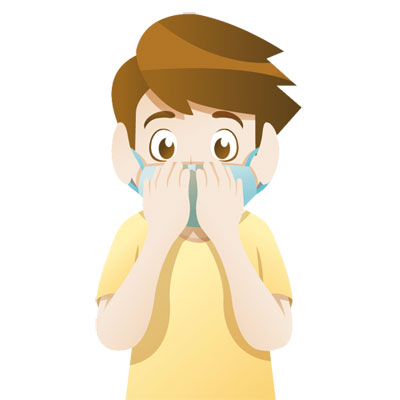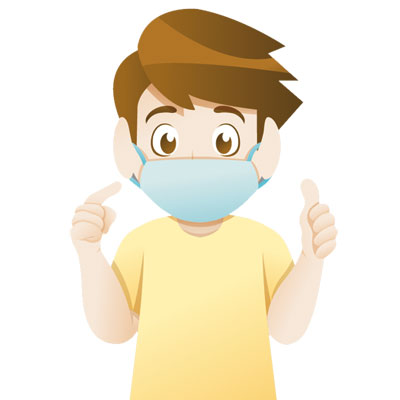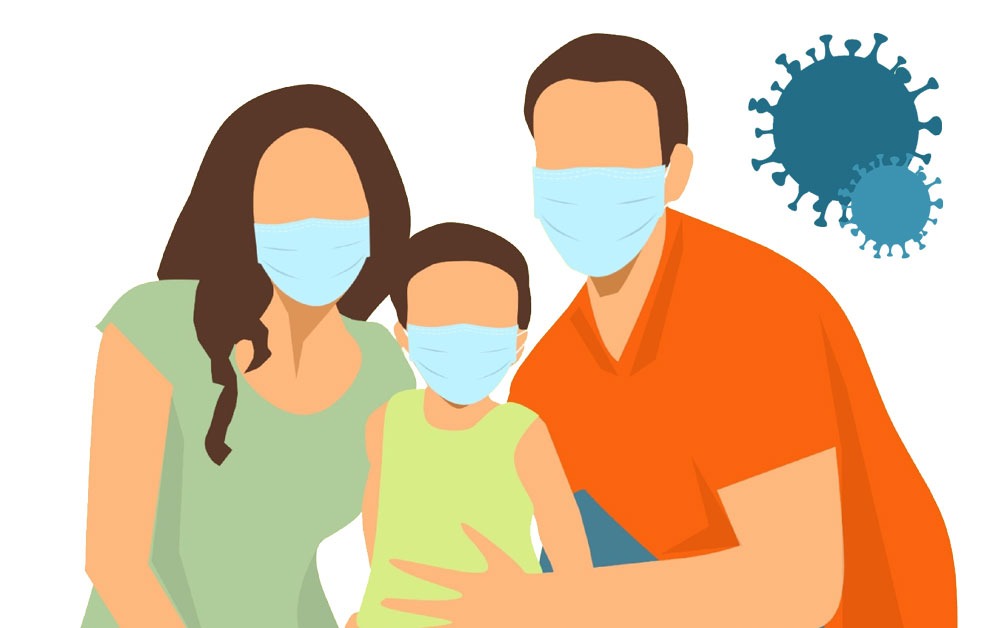Medical mouth and nose protection masks for children and adults. In some federal states already partly obligatory, the Robert Koch Institute advises to wear protective masks in public. When we speak or exhale, we expel spit or aerosols that contaminate surfaces or the ambient air with viruses, which allowed the Covid-19 virus to spread quickly. By wearing our one-time face masks, the spread of viruses through aerosols or spitting particles is significantly reduced. The disposable 3-layer face masks have a standard unit size of 9.5 cm x 17.5 cm and are therefore ideal for both adults and children. The masks are made of high-quality, breathable non-woven fabric and soft, elastic ear hooks.

Respirators
Protect yourself and your fellow man from Covid-19
Packaging units:
• 10 respirators in PE foil, 23cm x 13cm
• 5 x 10 respirators in PE foil in a box, 22,5cm x 13,2cm x 8,8cm
• 60 x 50 respirators in a carton, 63cm x 50cm x 46cm
Properties:
- Medical respirators type I according to DIN EN 14683 in PE-foil
- CE-Marking
- Use by patients, doctors, nursing and rescue staff, not for use in operating rooms
- These face masks do not provide protection against viruses, but they do help reduce the spread of viruses
Correct use of respiratory masks
Put on the respirator
Place the respirator over mouth and nose with the white side facing inwards. Pull the white rubber bands behind the ears to secure the mask.
Ideally the mask should extend from the bridge of the nose to under the chin, including any beard. The loops should be adjusted to the size of the head so that the mask fits comfortably but tightly against the face and there are no gaps at the sides.
Take off the respirator
When putting on and taking off - and while wearing - avoid touching the protective mask directly at the front. The mask should only be pulled over the ears at the straps and over the chin and nose at the hem. Before and after donning and wearing the mask, hands should be washed sufficiently with soap.



